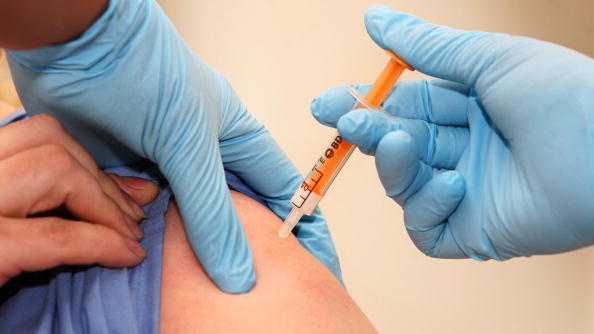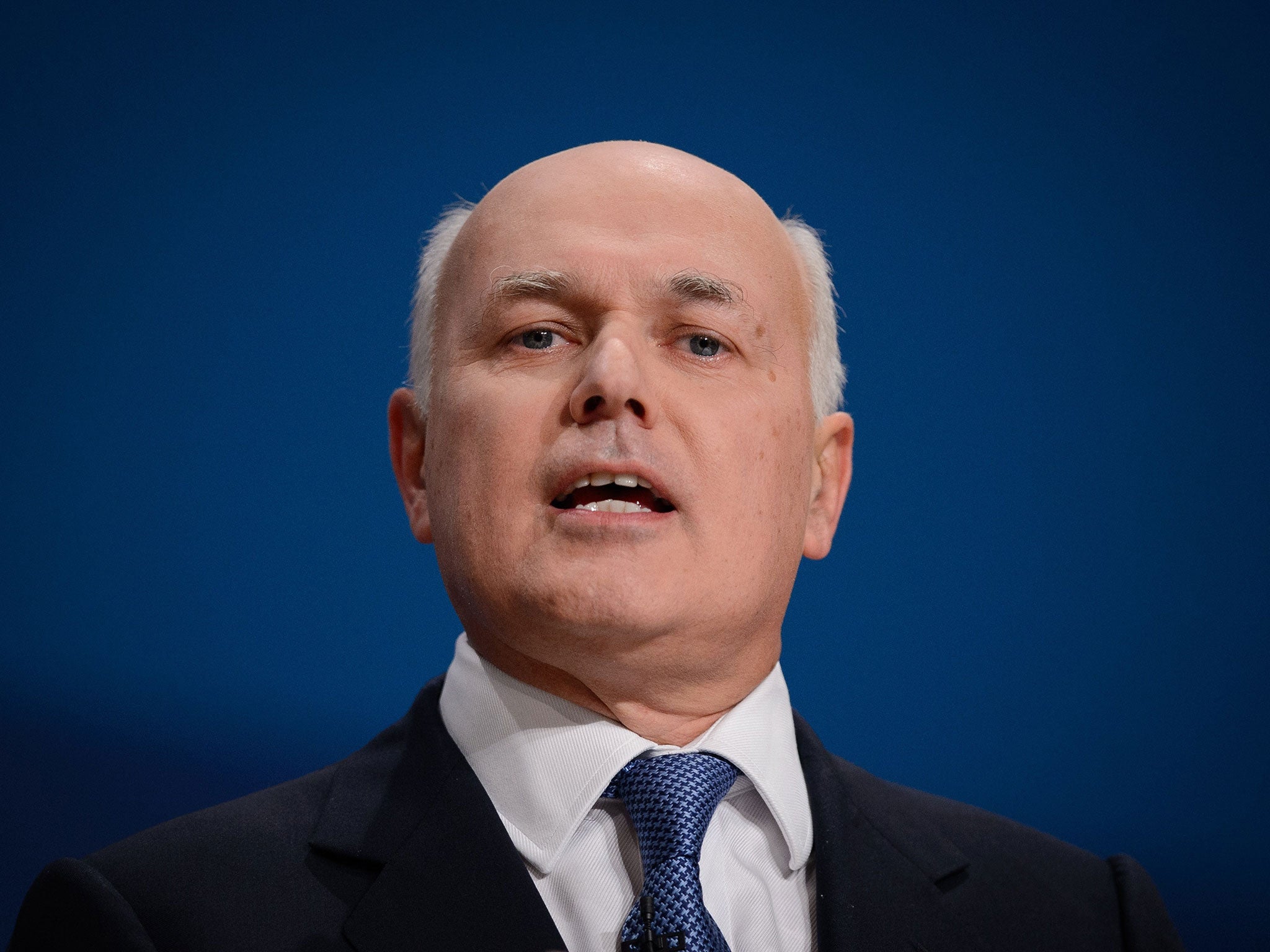Boy, 12, wins £120,000 in damages after swine-flu jab left him 'severely disabled' by narcolepsy
The landmark ruling could force the Government into paying millions of pounds to dozens of people with the same rare brain disorder

Iain Duncan Smith has lost a three-year legal battle and been ordered to pay £120,000 compensation to boy of 12 who faces a lifetime of suffering from narcolepsy caused by the swine flu vaccination Pandremix.
The landmark ruling could force the Government into paying millions of pounds to dozens of people with the same rare brain disorder that causes someone to fall asleep suddenly at any time.
The Department for Work and Pensions (DWP) failed in its appeal against a tribunal judgment in a recent test case that the child, ‘John’, was entitled to vaccine injury compensation. He received the swine flu vaccine in December 2009, aged 7, and was diagnosed with narcolepsy five months later following “extensive hospital investigations”.
The legal case began in January 2012 when John’s parents made a claim for compensation under the Vaccine Damage Payments Scheme.
The DWP wrote to John’s parents in 2013 admitting that the vaccine, manufactured by GSK and widely available in the UK during the 2009-10 swine flu pandemic, had caused the narcolepsy. Yet the DWP did not accept that John’s condition was “severe”, defined as “60 per cent or more disabled” and the threshold needed to be met to win compensation under the scheme. It therefore refused to pay out – even after the UK Government’s own study that showed vaccinated children were 14 times more likely to have narcolepsy than unvaccinated controls.
Peter Todd, from Hodge Jones & Allen solicitors, took the case to First-tier tribunal on behalf of the child, whose parents have requested remains anonymous. He won their case, and with it the statutory six-figure compensation, but the DWP appealed to the Upper Tribunal.
Judge Edward Mitchell upheld the earlier decision and ordered Mr Duncan Smith to pay the compensation. He heavily criticised the Work and Pensions Secretary for giving a written submission at the start of the tribunal hearing that was “not of an acceptable standard”, failing to summarise a 1,500-page evidence document, and not bothering to send a representative to the hearing.

In his ruling, published this week, the judge said: “In my experience, more effort is put into and more assistance derived from DWP submissions in Jobseekers Allowance sanction cases involving a few hundred pounds.”
Judge Mitchell found the Mr Duncan Smith’s grounds of appeal “devoid of merit” and that it was based on sections of a report by a DWP medical adviser that contained “no proper analysis of trends”.
“I find none of the Secretary of State’s arguments persuasive”, Judge Mitchell said. “I have rejected all of the grounds relied on by the Secretary of State… Accordingly, the First-Tier Tribunal’s decision stands and, if he has not done so, the Secretary of State must make a payment for John’s benefit of the relevant statutory sum.
“I would also suggest that the Secretary of State reconsiders his practice of not sending presenting officers to vaccine damage appeal hearings, especially in cases where causation is accepted.”

In contrast to the DWP’s handling of its case, the judge agreed with the findings of a report from Paul Gringras, a Professor in Paediatric Nerodisability and Sleep Medicine from Evelina London Children’s Hospital, which said John’s case “would be classed as a more severe case of narcolepsy and cataplexy”.
Professor Gringras also said the boy has a “lifetime neurological disease” that is “very likely” adversely to affect his education, ability to work and learn.
A DWP spokesman said: “We cannot comment on individual cases. The Vaccine Damage Payments Scheme provides support in very rare cases where someone has become severely disabled as a result of immunisation against certain diseases. Decisions on claims take into account the individual circumstances of each case and the latest available medical evidence.”
By January 2010, swine flu had caused around 250 deaths in the UK and 2.5 million people had taken the vaccine. Around 1,000 people across Europe are thought to be suffering from narcolepsy as a result of the swine flu vaccine of which about 80 have been identified in the UK.
A spokesman for GSK, which manufactures Pandremix, said: “Patient safety is our number one priority and we are actively researching the observed association between Pandemrix and narcolepsy and the interaction this vaccine might have had with other risk factors in those affected.”
Mr Todd, who is acting for 75 of the Britons in civil liability claims against GSK for injury and loss caused by the Pandremix vaccine, said: “The £120,000 award is not full compensation but will help those struggling as a result of what happened to some extent. John’s case is an important precedent for any future case involving vaccine injury and is the first time the issue has been considered by an appellate court. We are overjoyed to have won this round of this lengthy legal battle – the original application for compensation was submitted over three years ago. The DWP now has 21 days to decide whether to attempt a further appeal to the Court of Appeal.”
Join our commenting forum
Join thought-provoking conversations, follow other Independent readers and see their replies
Comments
Bookmark popover
Removed from bookmarks